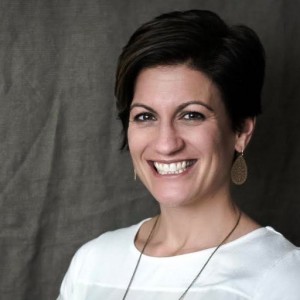Teachers to Explore How to Diversify Student’s Learning Habits with Education on the Edge Lecture
The brain is the foundation for learning. Like a sponge, it soaks up knowledge in various ways. Whether we read a textbook, solve a mathematical problem or watch an educational film, our individual brains perceive, interpret and process information differently than any other human on the planet.

California State University, Northridge’s next Education on the Edge speaker, Katie Novak, will discuss Universal Design for Learning. Photo Credit: Katie Novak’s Twitter.
California State University, Northridge’s next Education on the Edge speaker will discuss an approach to curriculum that minimizes educational barriers and helps students utilize their abilities to absorb knowledge. Katie Novak, assistant superintendent for the Groton-Dunstable School District in Massachusetts, will discuss Universal Design for Learning (UDL) — a framework that helps improve teaching and learning for all people. The event will take place Thursday, Sept. 21, from 7 to 8:30 p.m. in the Northridge Center of the University Student Union on the east side of campus at 18111 Nordhoff St. in Northridge.
Novak will talk about how UDL’s structure aims to eliminate barriers to learning, such as a student’s reading comprehension, difficulty working alone or deciphering abstract concepts. Novak also will discuss how UDL helps teachers redesign a flexible curriculum that can be used with all types of learners, addressing a student’s current knowledge and developing their skills and enthusiasm for learning as it supports and challenges them.
“The idea for Universal Design for Learning is that you’re creating ways for all students to access curriculum and instruction, but you’re doing it proactively by designing it from the beginning,” said Wendy W. Murawski, executive director and Eisner Endowed Chair of CSUN’s Center for Teaching and Learning, which hosts the event. “With UDL, I think about my lesson and from the start. What if I have a student who wants to actively engage or who doesn’t read or hear well? What if I have a student who doesn’t like to work with other peers? With UDL, I’ll answer all my ‘what if’ questions.”
Instead of teachers focusing on how they are going to plan and teach a curriculum, they focus on who they are instructing. Novak will discuss how educators can use recognizable materials to help students learn and gain skills by utilizing graphics and animation and activating background knowledge and vocabulary.
“What works for one student may not work for another,” Murawski noted.
Novak is the daughter of two educators and was born and raised in Seekonk, Mass. She began the first two years of her teaching career in California as an English teacher for all grade levels at Northwood High School in Irvine and Big Bear High School in Big Bear City. She later taught seventh-grade English at Parker Middle School in Chelmsford, Mass. and later became the curriculum coordinator of the Chelmsford Public Schools in Massachusetts before taking her current position.
Novak also has authored the books “Universally Designed Leadership,” “UDL in the Cloud,” “UDL Now,” and “Let them Thrive.” She is an associate with the Center for Applied Special Technology — a nonprofit research and development organization that works to expand learning opportunities for all individuals.
The Education on the Edge series is free and open to the public. However, reservations are required. For more information and to reserve a seat, visit the eventbrite website.
CSUN’s Center for Teaching and Learning is the research, collaboration and professional development arm of the Michael D. Eisner College of Education. Faculty from departments across the college are conducting cutting-edge research and professional development to better address the needs of schools, as they work in collaboration with K-12 teachers, administrators and community members.
The center was established in the summer of 2002, thanks to a generous gift from the Eisner Foundation, the family foundation of Michael and Jane Eisner. The center initially focused on neurodevelopment and how knowledge of those constructs can be taught to teachers — and ultimately impact the way they teach and the way students learn. It has since broadened its scope. Faculty and affiliates are researching and analyzing multiple innovative approaches to teaching, counseling, educational therapy, administration and professional development. The center also offers speakers bureau that provides local schools and organizations an opportunity to bring these new approaches to their campuses. More information about the center can be found at the Center for Teaching and Learning website.

 experience
experience